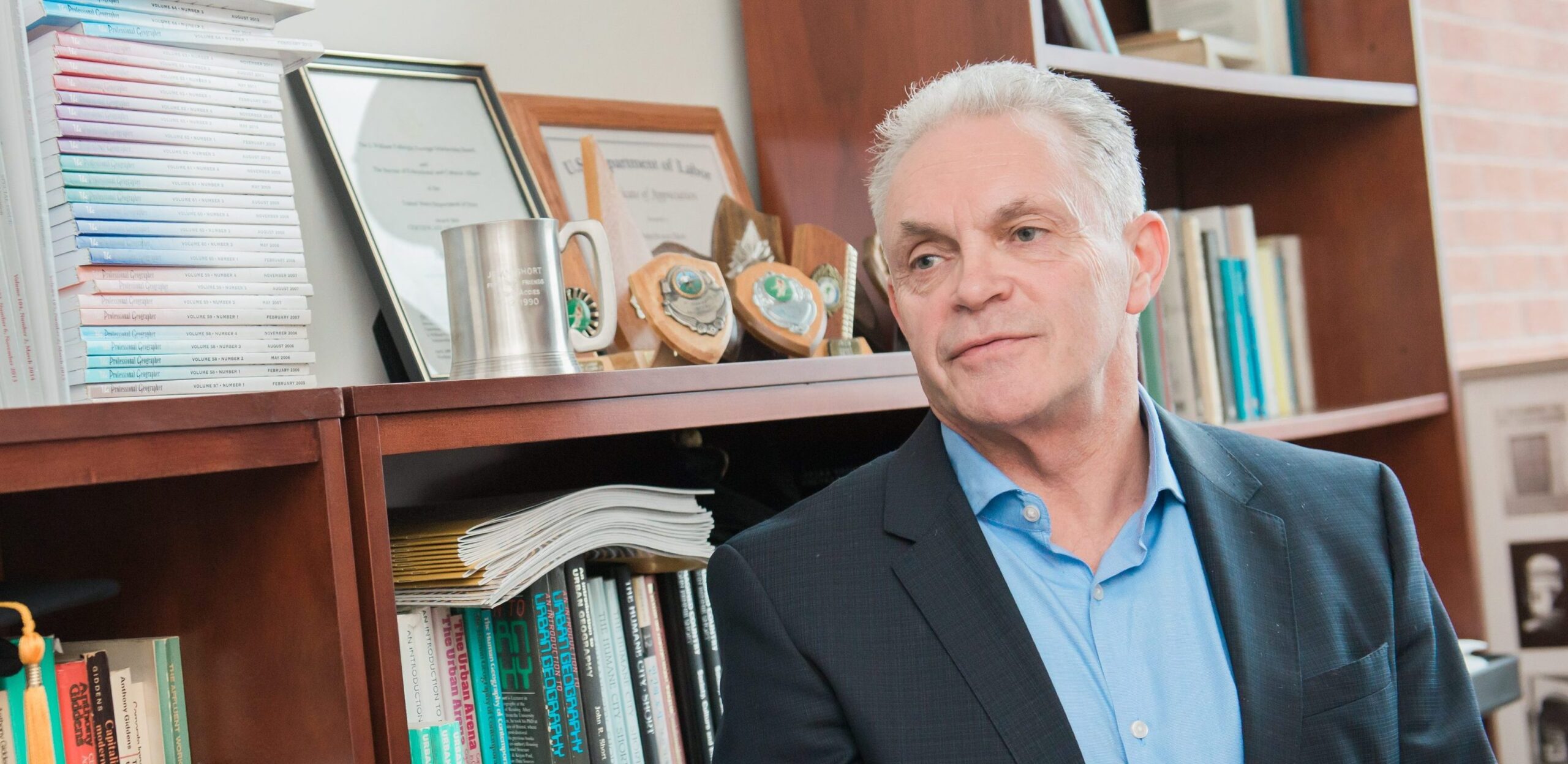With the 2016 election just days away, UMBC faculty have been in the news discussing voter dissatisfaction with government and the divided political landscape that faces both presidential candidates heading into Election Day.
School of Public Policy Professor John Rennie Short argued in The Conversation that the upcoming election is more about the legitimacy of the political system than deciding who is to govern. In 1964, Short explained that more than two-thirds of Americans trusted the federal government, and just last year that number had fallen to just less than 1 in 5 citizens.
In his article, Professor Short explored the decline of the blue-collar middle class, generational differences, and the financial sector’s influence on politics and society as root causes for the lack of trust in the federal government.
“There are a number of potential crises in democratic capitalist societies. As outlined by German sociologist Jurgen Habermas, they are: fiscal crisis when government expenditure is more than revenue; economic crisis when the economy fails to meet popular expectations; or rationality crisis when there is a failure to make the correct decisions,” Short wrote. “The U.S. may be in the difficult position of undergoing all of these at the same time.”
On Fox News, Political Science Professor and Chair Thomas Schaller talked about why the electorate is so divided and explained that rising polarization goes as far back as the late 1980s and is especially visible in the Bush and Obama administrations.
“Bush ran as a uniter, not a divider,” Schaller said. “He had a national catastrophe, and the country was no more united after eight years than they were before. Obama rides election on the waves of the biggest economic crisis since The Great Depression, and the country is no more united after eight years.”
Schaller also described how the next president will inherit an extremely divided political landscape with both major political parties likely making it difficult to govern.
“Hillary Clinton or Donald Trump, it doesn’t matter who we are talking about, is going to come in with a very difficult ability to lead because I think the two camps, red and blue America, are done with each other, and it’s a war of each against the other,” he said.
In other news, Schaller also explained how the “roll-off” issue, when people cast a ballot for some races but don’t bother with others, will likely impact the results of the election.
Turning attention to state politics, School of Public Policy Professor and Director Donald Norris was quoted in a Baltimore Sun article about the impact of independent voters in Maryland on the upcoming election.
Find a complete roundup of media coverage below:
The ‘legitimation’ crisis in the US: Why have Americans lost trust in government? (The Conversation)
How division in America is impacting the 2016 election (Fox News)
Speaking politics phrase of the week: ‘roll-off’ (Christian Science Monitor)
Amid partisan acrimony, independent voters on the rise in Maryland (The Baltimore Sun)
Image: John Rennie Short in his office. Photo by Marlayna Demond ’11 for UMBC.
Tags: CAHSS, PoliticalScience, PublicPolicy

